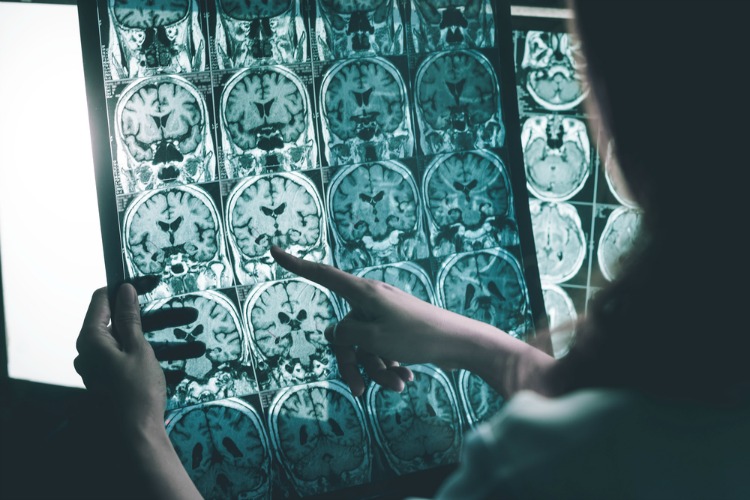You may have heard some of the buzz about using cannabis to treat Alzheimer’s disease. But what does the evidence say? Let’s take a look at the current information about this debilitating form of dementia and how medical cannabis for Alzheimer’s might be a solution.
Understanding Alzheimer’s
Alzheimer’s Disease (AD) is an irreversible brain disorder that progressively destroys memory and thinking skills. It leads to the eventual loss of the ability to perform simple tasks. It can even cause symptoms like depression, anxiety, and agitation which lower the quality of life even further. Symptoms typically appear in those in their mid-60’s, and it’s the most common cause of dementia in older people.

AD attacks part of the brain knows as the hippocampus, which is responsible for memory processing. The hippocampus becomes filled with abnormal clumps of amyloid plaques, as well as tangled bundles of fibers called tangles, which are thought to be responsible for the damage to the brain.
The clumps and tangles don’t just affect cognitive memory function; they also cause high levels of free radicals and inflammation that leads to worsening of symptoms and disease progression. As neurons and brain connections die, they can no longer send messages to the body. By the final stages of the diseases, brain damage is so severe that patients often need full-time care.
Cannabis for Alzheimer’s
Because the main feature of Alzheimer’s is the buildup of amyloid plaques, researchers are interested in treating the diseases by targeting the proteins that lead to their development. While there haven’t been many clinical trials of cannabis for people living with dementia, there have been some promising studies doe with lab-grown cells and mice.

Here is what the research has to say:
-
- A 2016 study by the Salk Institute found that THC may reduce beta-amyloid in the brain and stop the inflammatory response on nerve cells.
- A 2018 study found that CBD and THC helped improve learning and reduced amyloid clumps in the bodies of mice with Alzheimer’s symptoms.
- A Study published in the Journal of Alzheimer’s Disease looked at the potential for THC to slow or stop the progression of AD. It found the THC can reduce amyloid plaques and concluded that cannabis is a promising treatment for AD.
Other Ways Cannabis Can Help
Because both CBD and THC have proven anti-inflammatory properties, there is potential for them to be used to reduce the free radical damage and inflammatory process associated with AD. Many compounds in cannabis are also powerful antioxidants, which can help reduce the inflammation that contributes to the diseases.
For people suffering from AD, quality of life can be a big factor. Cannabis has been shown to help improve the quality of life in those suffering from AD by reducing agitation, improving sleep, and increasing food intake.

The takeaway?
While there is still a lot of research needed on how cannabis can work to battle dementia and diseases like AD, the clinical evidence so far looks very promising. There is also a lot of anecdotal evidence (what patients self-report) that suggests cannabis can help slow memory loss and significantly improve the quality of life in people living with dementia.
While Alzheimer’s is not currently listed as a qualifying condition under Maryland law, physicians may still recommend cannabis use for patients who they feel will benefit from it. Speak to your or your loved one’s physician to learn more.
Are you interested in learning more about medical cannabis? We’d love to hear from you. Schedule an appointment and our friendly staff can help you learn about the right produces to help you manage your condition and improve your quality of life.




